#dita parlo
Explore tagged Tumblr posts
Text




Dita Parlo and Jean Dasté in L’atalante (1934)
#dita parlo#jean daste#michel simon#jean vigo#l’atalante#movies#filmedit#actress#actor#moviegifs#french films#filmgifs#filmblr#classicfilmsource#classicfilmblr#cinemapix#cinemaspam#cinematv#cinemaspast#cinemasource#fyeahmovies#dailyworldcinema#dailyfilmsource#dailyflix#dailyflicks#userdestry#userairam#userdeforest#userthing#my gifs
72 notes
·
View notes
Text

#polls#movies#grand illusion#grand illusion 1937#grand illusion movie#30s movies#jean renoir#jean gabin#pierre fresnay#erich von stroheim#marcel dalio#dita parlo#have you seen this movie poll
36 notes
·
View notes
Text

German film actress Dita Parlo on a vintage postcard
#photography#film#vintage#ephemera#sepia#dita parlo#actress#carte postale#postkarte#parlo#briefkaart#tarjeta#postal#historic#german#dita#postkaart#photo#ansichtskarte#postcard
13 notes
·
View notes
Text

Dita Parlo, September 4, 1908 – December 12, 1971.
Jean Vigo’s L’Atalante (1934).
11 notes
·
View notes
Text

#Grande Illusion#Jean Gabin#Dita Parlo#Pierre Fresnay#Marcel Dalio#Erich von Stroheim#Jean Renoir#1937
8 notes
·
View notes
Photo
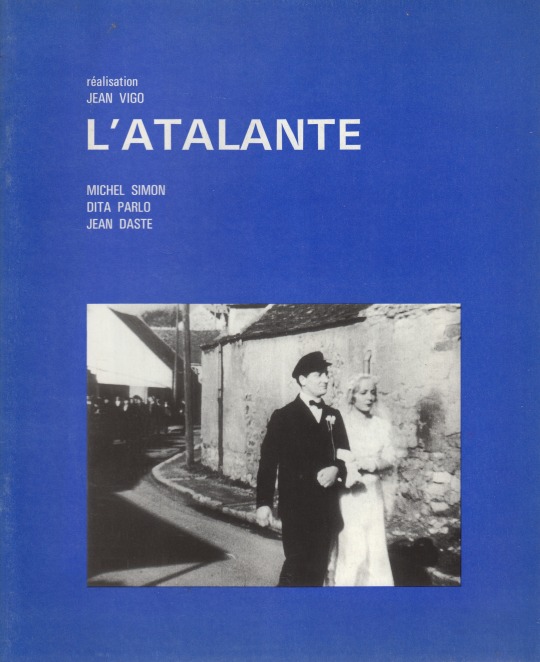
アタラント号 ジャン・ヴィゴ監督作品 KUZUIエンタープライズ
#l'atalante#アタラント号#jean vigo#ジャン・ヴィゴ#michel simon#dita parlo#jean daste#anamon#古本屋あなもん#あなもん#映画パンフレット#movie pamphlet
22 notes
·
View notes
Text


Don't you know you can see your beloved's face in the water?
#l'atalante#Le Chaland qui passe#Jean Vigo#The Passing Barge#Dita Parlo#Jean Dasté#poetry#scenephile#movie quotes#film quotes#movie scenes#movie scene#film scene
13 notes
·
View notes
Photo

Jean Vigo and Dita Parlo on the set of “L’Atalante”, 1934.
r.m.
10 notes
·
View notes
Text
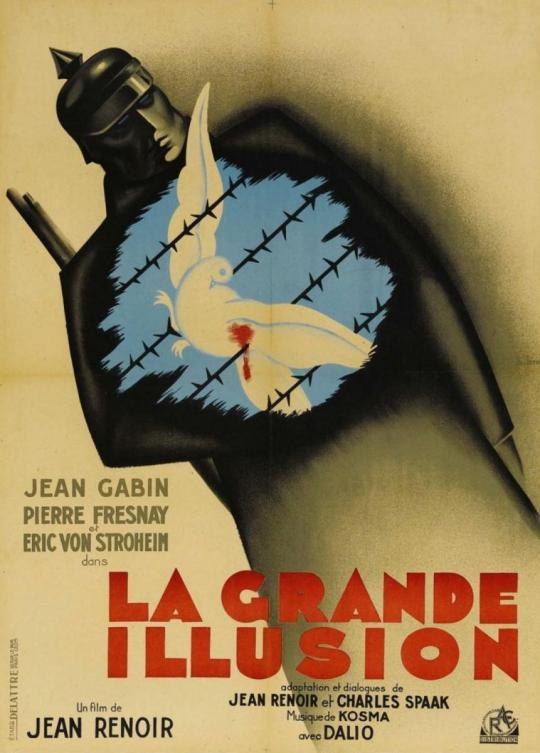


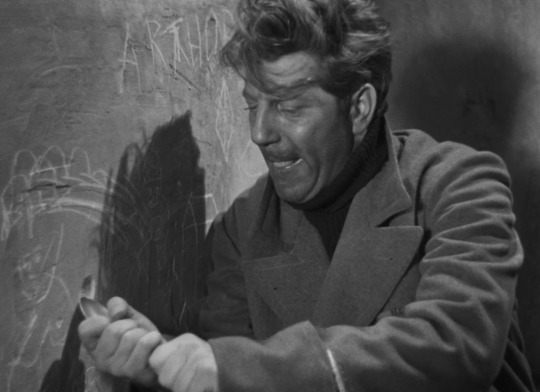
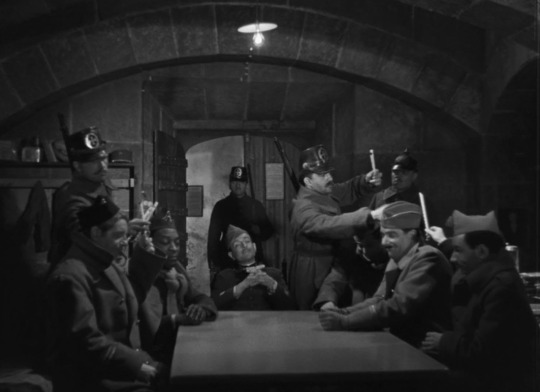
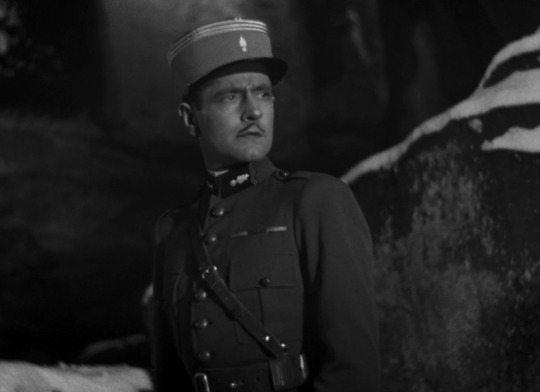

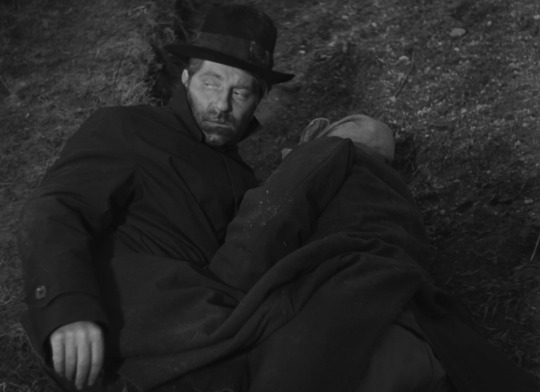
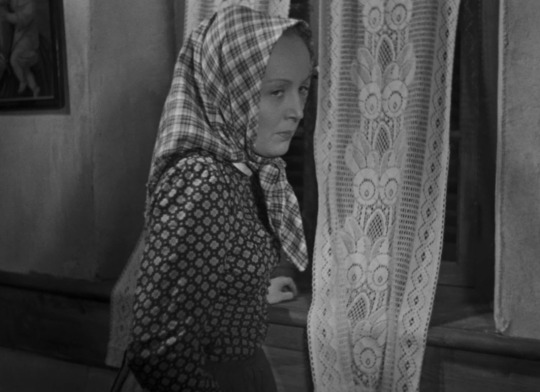
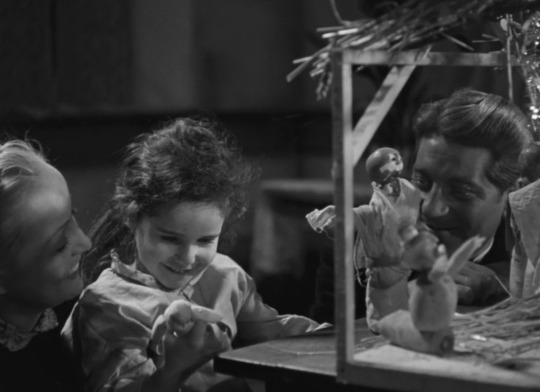
The Grand Illusion by Jean Renoir (1937)
6 notes
·
View notes
Text
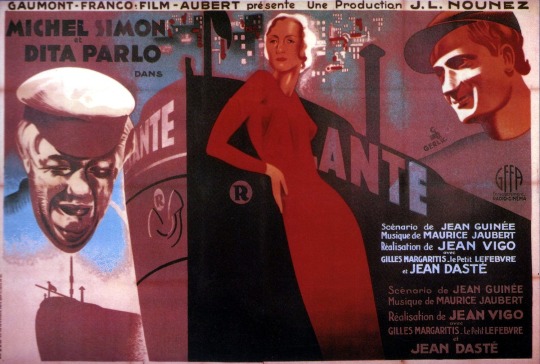
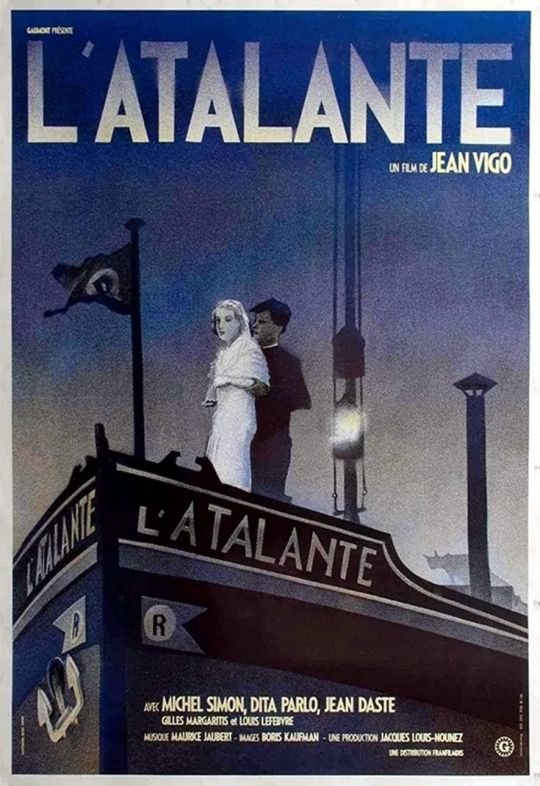
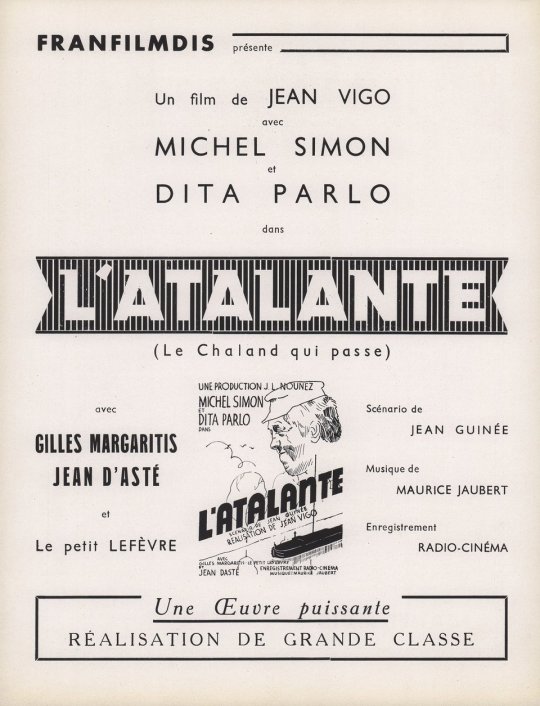
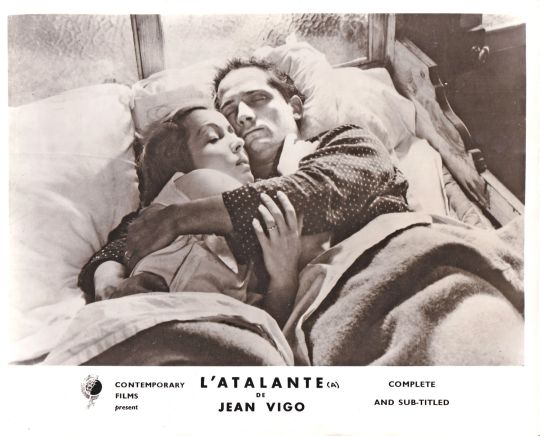
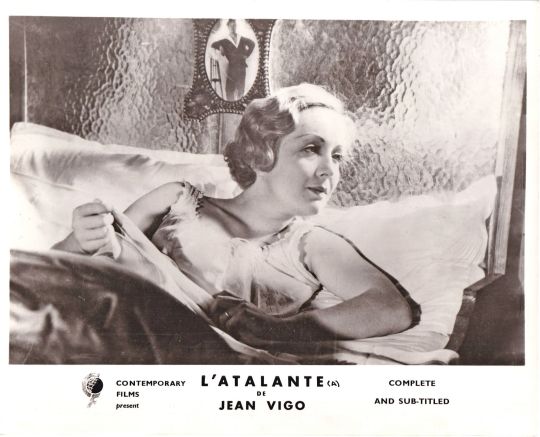
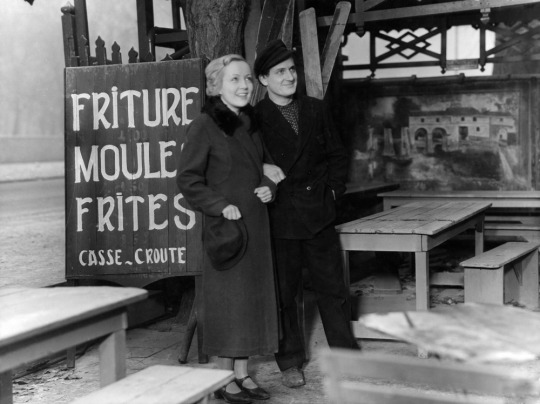
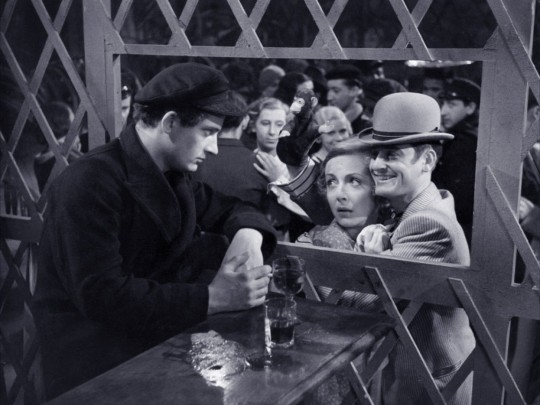
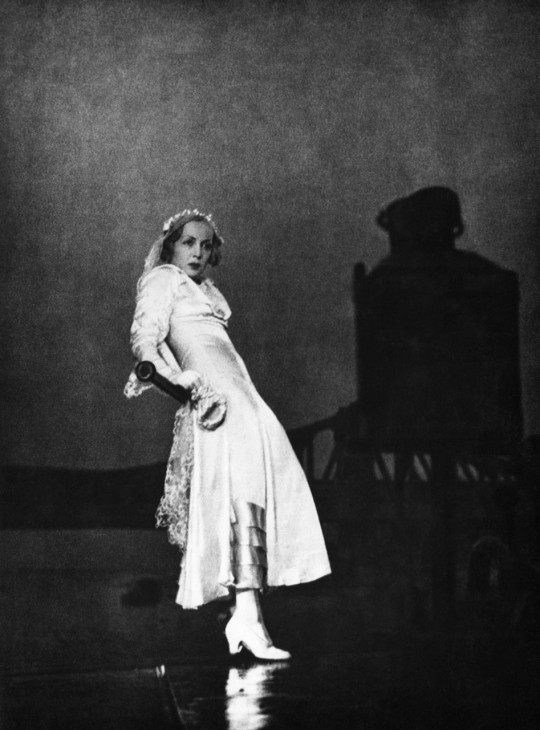
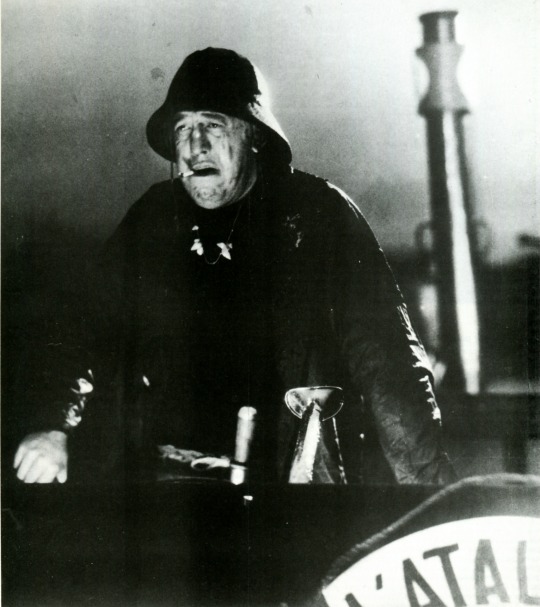
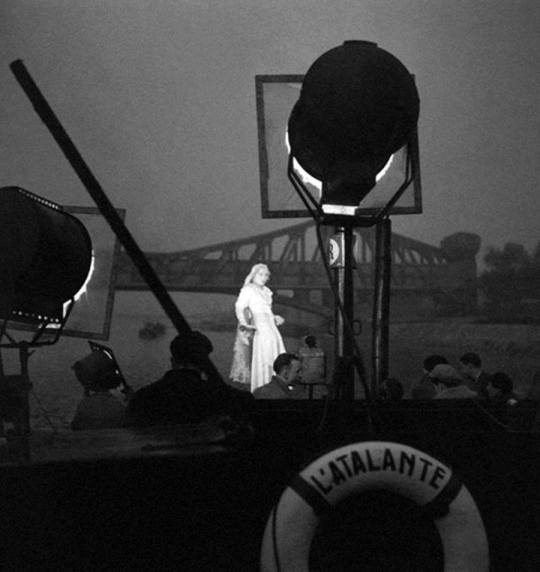
L'Atalante (1934) Jean Vigo
June 24th 2023
6 notes
·
View notes
Photo
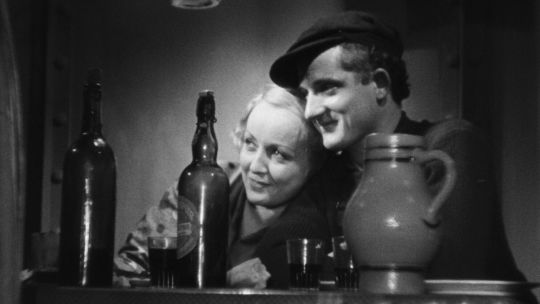
Dita Parlo and Jean Dasté in L'Atalante (Jean Vigo, 1934)
Cast: Dita Parlo, Jean Dasté, Michel Simon, Gilles Margaritis, Louis Lefebvre, Maurice Gilles, Raphaël Diligent. Screenplay: Jean Guinet, Albert Riéra, Jean Vigo. Cinematography: Boris Kaufman. Art direction: Francis Jourdan. Film editing: Louis Chavance. Music: Maurice Jaubert.
L'Atalante is one of those near-universally acclaimed film masterpieces that failed theatrically on their first release and were rediscovered and re-evaluated more than a decade later. But it's also one of those films that young contemporary movie lovers may not "get" on first viewing today. I remember my own reaction to films like The Rules of the Game (Jean Renoir, 1939) and L'Avventura (Michelangelo Antonioni, 1960), movies that didn't fit what I expected from being raised on energetic, plot-driven, star-centered American movies. Melancholy and irony are not widely praised American values, although lord knows we have plenty of it in the best American literature. They surfaced for a time in the best American films of the 1970s, but have been driven back into the underground by the blockbuster mentality. There was a time, even after the great cinematic awakening of the '70s when I found myself resenting film critics for their inability to appreciate popular movies I liked: "Critics see too many movies to enjoy them," I sniffed. But the truth is, the more movies you see, the more you're able to appreciate those that don't walk the line, that don't instantly gratify the hunger for plot resolution, for spectacle, for something that sends you out of the theater blissfully untroubled by thought. L'Atalante confused and bored its contemporary viewers, but today those of us who love it do so because it seems to us alternately tender and brutal, simultaneously comic and touching, and, taken as a whole, one of the few movies that successfully transport us to a time and place and a company of human beings we have never found ourselves in the middle of before. It is also, despite years of mishandling and cutting and botched attempts at restoration, one of the most technically dazzling films ever made. The performances -- by Michel Simon as the rather gross Père Jules, Dita Parlo and Jean Dasté as the young couple trying to start married life on a cramped river barge, and Gilles Margaritis as the madcap peddler who almost wrecks their marriage -- are extraordinary. Cinematographer Boris Kaufman overcame the severe limitations of filming scenes in the cramped quarters below-decks as well as open-air scenes for which the weather refused to cooperate. Vigo and Kaufman stage visual compositions that have a freshness that never seems arty. And who can ever forget Simon's Père Jules clambering aboard the barge with a kitten on his shoulders? Every corner of L'Atalante is filled with life.
3 notes
·
View notes
Text

#polls#movies#l’atalante#30s movies#jean vigo#michel simon#dita parlo#jean dasté#gilles margaritis#louis lefebvre#have you seen this movie poll
27 notes
·
View notes
Text

German film actress Dita Parlo on a vintage postcard
#sepia#photography#film#vintage#postkaart#german#ansichtskarte#ephemera#carte postale#postcard#parlo#postal#dita#dita parlo#briefkaart#actress#photo#tarjeta#historic#postkarte
16 notes
·
View notes
Text

Dita Parlo, September 4, 1908 – December 12, 1971.
With Pierre Alcover in André Hugon’s La rue sans joie (1938).
4 notes
·
View notes
Text
L'Atalante
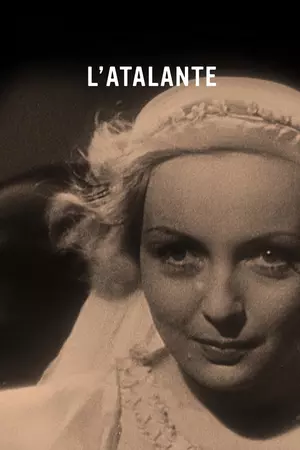
🇫🇷 | Apr 24, 1934
directed by Jean Vigo
screenplay by Albert Riéra, Jean Guinée, Jean Vigo
produced by Jean-Louis Nounez
starring Michel Simon, Dita Parlo, Jean Dasté, Gilles Margaritis, Louis Lefebvre
1h29 | Drama, Romance, Comedy
𐄂 not watched
Browse through collections
French Movies | director Jean Vigo | writer Albert Riéra | writer Jean Guinée | writer Jean Vigo | studio Jean-Louis Nounez | actor Michel Simon | actress Dita Parlo | actor Jean Dasté | actor Gilles Margaritis | actor Louis Lefebvre | The Complete Jean Vigo
Browse through genres
Drama | Romance | Comedy
Links
trakt.tv | letterboxd
#French Movies#Jean Vigo#Albert Riéra#Jean Guinée#Jean-Louis Nounez#Michel Simon#Dita Parlo#Jean Dasté#Giles Margaritis#Louis Lefebvre#Drama#Romance#Comedy#The Complete Jean Vigo
0 notes
Photo
L'Atalante (1934) Jean Vigo

Dita Parlo - Jean Vigo - source: bizarrela.com
46 notes
·
View notes